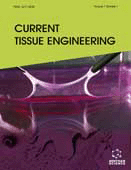Abstract
Therapeutic angiogenesis (TA) is a promising approach to improve impaired blood flow caused by ischemia. This approach is specifically applicable to patients with severe clinical limb ischemia (CLI) who have no alternatives to amputation. The TA contains three types of approaches: protein-based (i.e., using angiogenic factors), cell-based, and gene-based treatments. In this review, we describe the current state of protein-based TA to cure CLI and its future clinical application. Protein-based TA using angiogenic factors (e.g., fibroblast growth factor-2) combined with adequate carriers such as polymer-polysaccharide-based hydrogels for controlled-release may be the simple and convenient approach for current clinical applications, because of its less toxicity than gene-based method and less immunogenicity than cell-based method. The current accumulated preclinical and clinical data on TA will be helpful for preventing amputation in CLI patients and for treating various ischemic diseases. In addition, the data will provide valuable information for developing a technology towards regenerative medicine.
Keywords: Angiogenic growth factor, biomaterials, clinical limb ischemia, fibroblast growth factor-2, regenerative medicine, therapeutic angiogenesis.
 26
26

